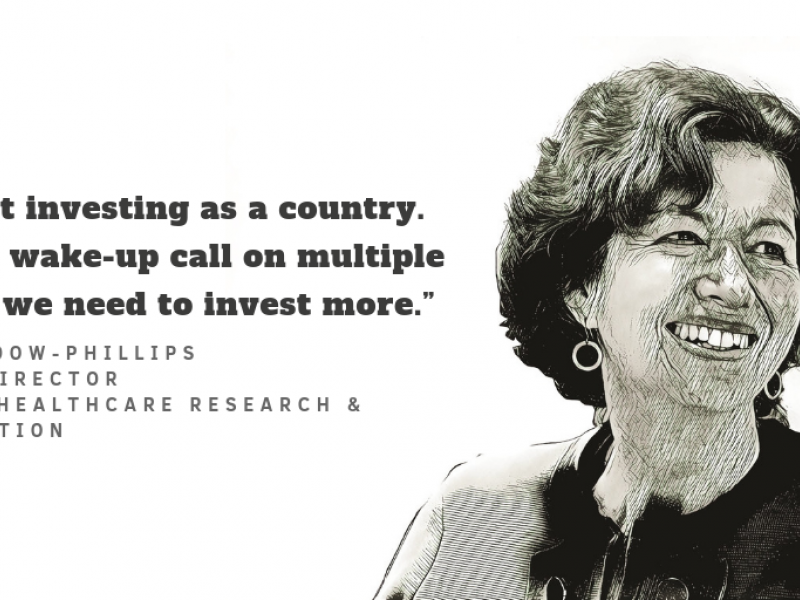
If a patient has an ailment and is lucky enough to have a doctor or nurse to see for a diagnosis, the medical appointment is useless if the patient lacks transportation to the clinic.
The same is true if the patient makes it to see the medical professional and gets a diagnosis, but is too depressed or anxious to follow the instructions because the appointment did not accompany a behavioral health evaluation and treatment.
Like a three-legged stool with one weak leg, health care delivery is only as good as the sum of its parts. Because the delivery system is so fragmented, patients without transportation, housing, or medical or behavioral providers stand little chance of improving in the long run.
Spending money upstream on helping patients seek care or maintain health can lower costs downstream, experts say. Otherwise, costs increase and outcomes fall.
For Marianne Udow-Phillips, executive director of the Center for Healthcare Research and Transformation in Ann Arbor, the overarching theme for 2019 will be a focus on the social determinants of health and on integrating medical, dental, behavioral, social services, housing and transportation.
The Michigan Department of Health and Human Services is developing a sustainability plan to continue a three-year, $ 70 million pilot program past its 2019 expiration date. Funded by the Affordable Care Act, the Blueprint for Health Innovation is being tested in five Michigan regions: Washtenaw and Livingston counties, Genesee County, Jackson County, Muskegon County and 20 counties in northern lower Michigan.
The goal of the state program is to coordinate care for all patients and link medical practices, hospitals, payers, housing agencies and social service organizations.
Other developments in Michigan in 2019 will include three regional pilot programs that are expected to test integration of Medicaid physical and behavioral health, expansion of opioid treatment and use reduction programs and a renewed focus on public health, Udow-Phillips said.
“I am very excited about (the potential for Michigan to) tie medical care systems, primary care with patient-centered medical homes, human services, behavioral health, food nutrition problems, housing and transportation so we can intervene earlier for really complex patients.
“As we think about what happened on Flint and with PFAS (polyfluoroalkyl substances)” still looming in Michigan drinking water, “there should be a renewed and expanded focus on public health. Public health needs to be integrated (with the larger health care delivery system).
“We are not investing as a country. Flint was a wake-up call on multiple levels that we need to invest more.”
